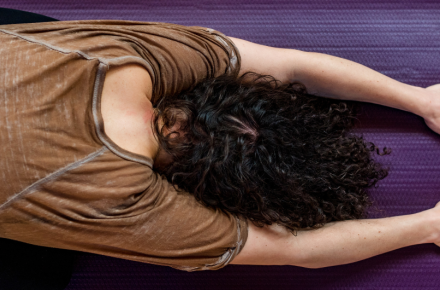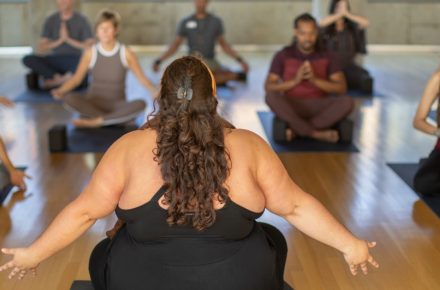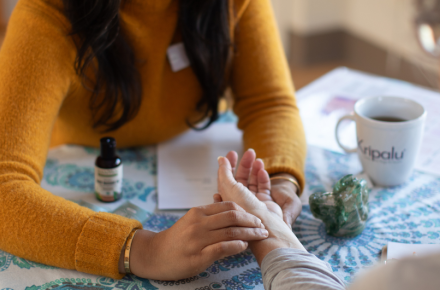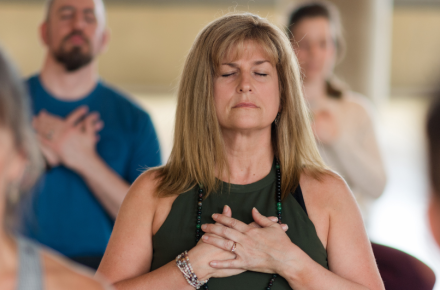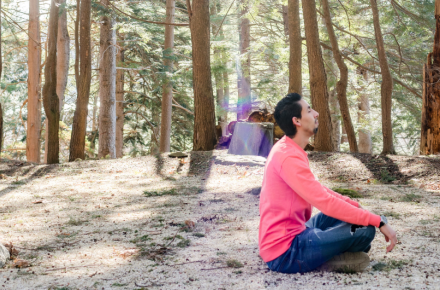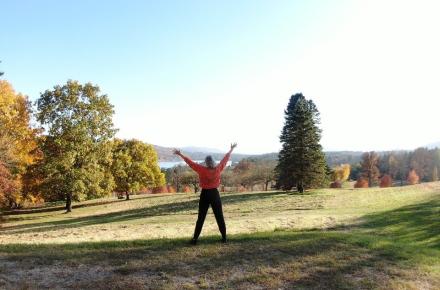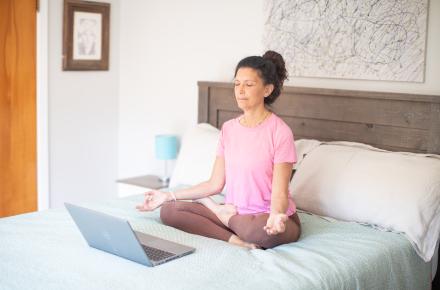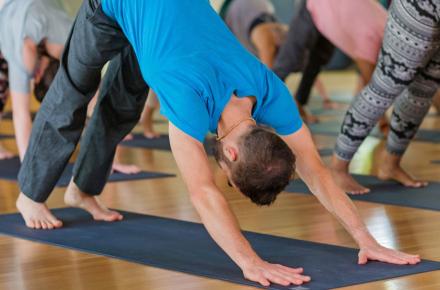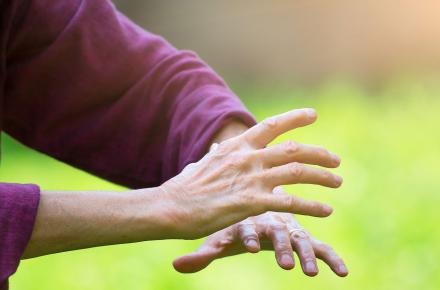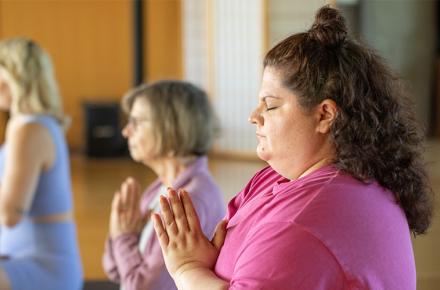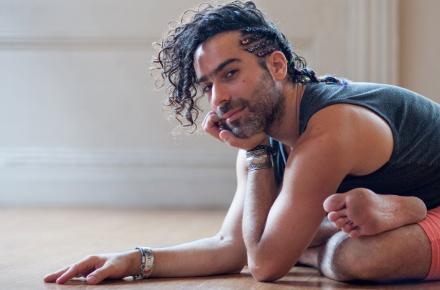The Power of Mindfulness for Breaking Unhealthy Habits

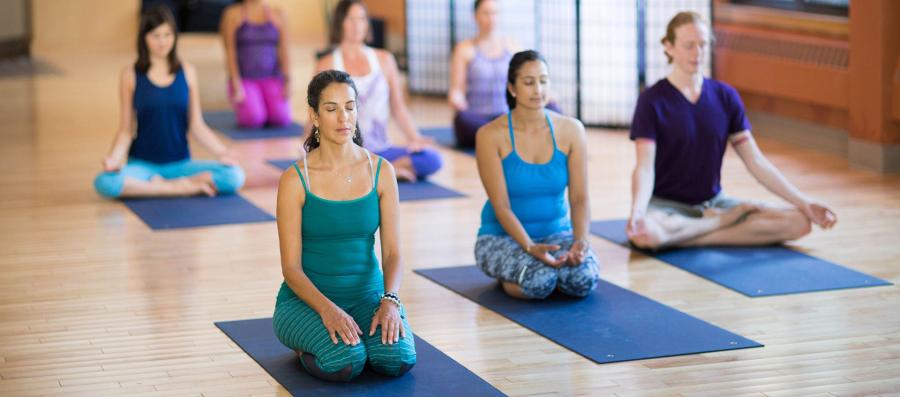
It’s been said that we teach best what we most need to learn. This has been my experience as I’ve studied how habits form and why they can be so hard to change—and as I’ve explored the role of mindfulness in changing my own unhealthy habits.
I’ve practiced mindfulness in meditation and daily life for 25 years, experiencing profound benefits, including living with more peace, acceptance, and ease, and a lessening of stress and suffering.
But as I dug deeper into the research on habits and their power—and turned the spotlight inward—I came to see previously unrecognized patterns of thought and behavior that led to stress and disconnection.
I noticed how I frequently responded to situations of delay or waiting—in stores, on the phone, in traffic—with impatience, marked by unpleasant sensations of tension, tightness, and feeling confined, linked with a mental narrative of, I need to change this.
I became aware of patterns of putting off tasks and responsibilities that felt difficult or challenging, and only engaging with them when they became truly urgent. Though not a chronic procrastinator, I experienced low-level tension and worry about things I hadn’t done but needed to take care of.
A tendency to distraction was another personal habit I observed—and I surmise may be what drew me to meditation as an antidote. I saw how, if I wasn’t consciously being present, my attention easily went to whatever was most visible, audible, shiny, or exciting. This has been challenging for my partner, Rebecca, when my attention would go to a new message on my iPad while we were cooking together.
Perhaps the most challenging personal habit was getting caught up in anxious, worried thinking when the demands and pressures of life became intense. How am I going to get all this done? This led, at times, to difficult periods where the prevailing mental story was too much to do … not enough time.
Bringing mindfulness to these habits—and reflecting on how I’d been able to let go of earlier unhealthy habits, such as smoking and overeating—provided me with compelling direct experience of the power of awareness in transforming unhelpful and unwanted habits.
I don’t mean to say that it’s a done deal and all my unhealthy habits are in the past. But I’ve realized a strong confirmation—from my own experience and through working with students—that the skills and practices of mindfulness provide the best and most trustworthy path I know to change unwanted habits and live with greater freedom and ease.
Whatever your unhealthy habit, mindful awareness provides a path to change—practical ways to abandon unhealthy patterns and create new, healthier ones. Whether it is eating without awareness, smoking, leaning heavily on alcohol or other substances, overworking, getting lost in distractions like social media or TV, or habits of thinking that mire us in suffering, mindfulness provides tools to release us from these patterns and heal our minds and hearts.
It’s not easy. Anyone who suggests that changing habits is quick or easy is selling snake oil. Habits—both healthy and unhealthy ones—take time to form and they take time and effort to change.
Mindfulness is not a quick fix either. It’s a practice—a training of the mind—that we cultivate over time with effort and determination. But mindfulness—conscious awareness of our present-moment experience—is the natural antidote to unhealthy habits, which are unconscious and automatic. Mindfulness opens the space to make more healthy and helpful choices. Then, when the choices we make about how we want to act and live align with our true interests and well-being, we can live with greater freedom.
Another important outcome of my ongoing investigation of habits has been to deepen compassion for myself and for everyone, as we grapple with patterns that, once set in motion, can be hard to change.
Almost all of us develop habits that are unhealthy or don’t truly serve our interests or meet our needs. When we do, it’s easy to become identified with the behavior—thinking that it reflects some essential truth about who we are: something is wrong with me, I’m flawed, or even, I’m a bad person. Then, when we try to change a habit and fail, we conclude that we’re weak or ineffective or a failure. We easily create an illusion of a flawed “self” based on our habits.
However, rather than being perceived as a character flaw, habits are best seen as natural processes. When we embark on a behavior that turns into an unhealthy habit, we’re attempting to meet a need. But the way we are going about it doesn’t get us what we are looking for. When repeated regularly under consistent conditions, the pattern becomes automatic and unconscious—and challenging to change.
A more helpful way of seeing unhealthy habits is to view them as losing our way. We take a path that doesn’t lead us where we want to go. Our task is to find our way home—to bring our thoughts and actions into alignment with our intentions and our deepest needs. Mindfulness offers a reliable and trustworthy path home; skills of attention, kindness, and acceptance help us transform unhealthy habits into a way of being that embodies freedom and inner peace.
Find out about upcoming programs with Hugh Byrne at Kripalu.
Excerpted with permission from The Here-and-Now Habit: How Mindfulness Can Help You Break Unhealthy Habits Once and for All, © 2016, by Hugh Byrne.








